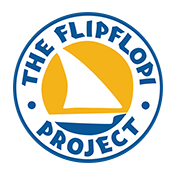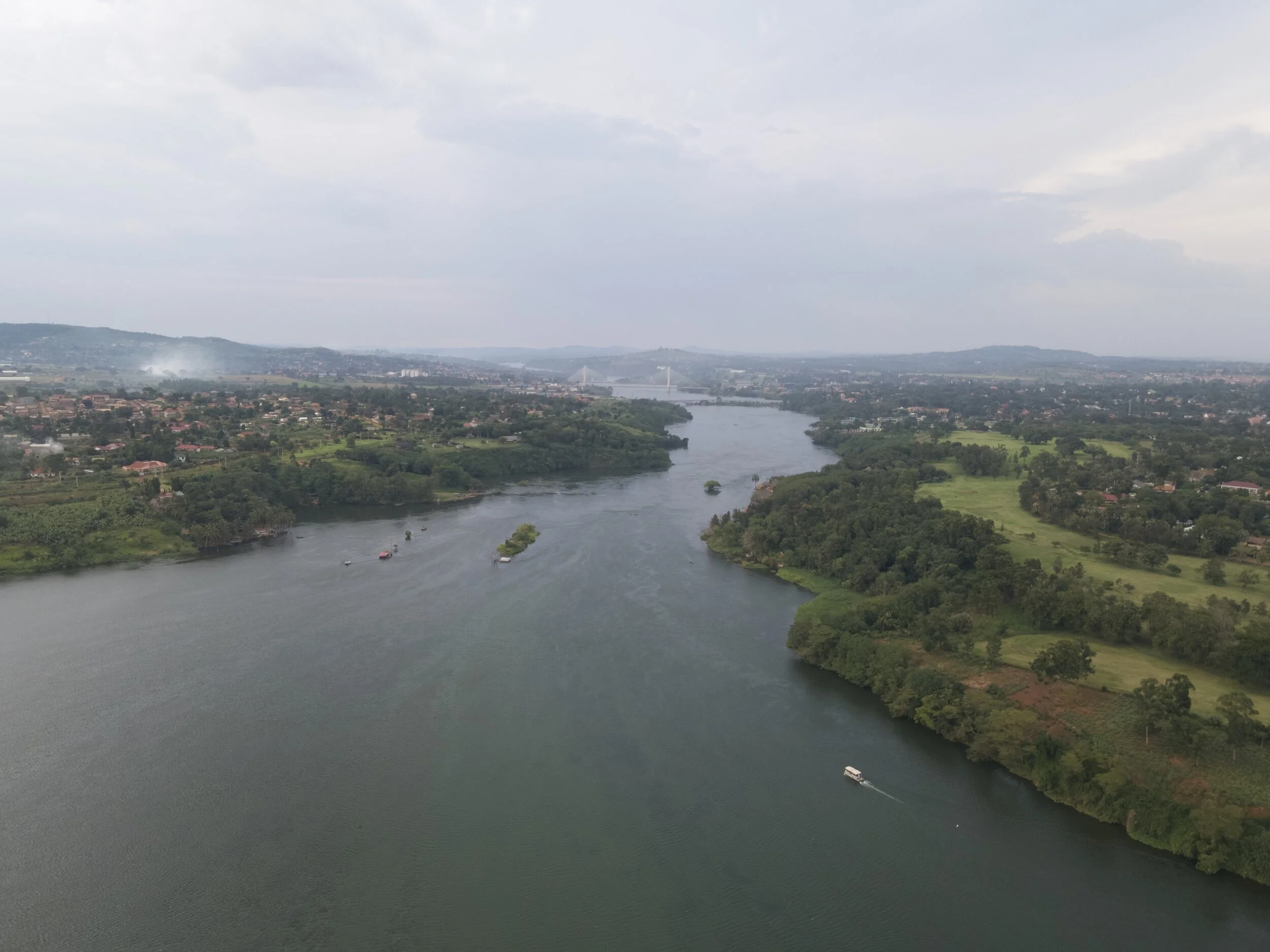Changing Behaviours By Creating New Markets In Jinja
By Hannah Evans
The Source of the Nile River from above Jinja City. © UMBER Studio the Flipflopi Project
Arriving in Jinja was a significant step on the Flipflopi journey into Uganda. Not only as the official launch in Uganda but due to the geographical significance as the source of the river Nile.
Of the three countries that border Lake Victoria, Uganda has the only river outlet. This is significant due to a recent study that found 88% of ocean plastics that is transported by 1350 comes from only 10 rivers. Of which the Nile is one.
This means this river that supports over 400 million people across 11 countries is one of the largest plastic polluters in the world.
This was the very reason we took the #plasticrevolution ‘upstream’. To bring attention to this critical ecosystem, and to try to encourage regional agreement to see widespread legislation banning single-use plastics.
Though Uganda does currently have legislation in place to ban single-use plastic bags or kavera as they’re called locally, there is no clear implementation of this throughout the country. Kavera can be seen everywhere. Choking villages, gutters and waterways and all on their way towards the lake.
A member of Jinja Scouts during their clean up in Jinja City. © UMBER Studio the Flipflopi Project
Without the implementation of legislation, it appears it will take a significant change of mindsets and behaviours and strong local leadership to make an impact here. In Jinja, though we found reasons to be optimistic due to engaged youth groups, a positive Mayor-Elect and a community starting to wake up to the fact that something must be done now to stop this plastic menace.
Jinja highlighted the importance of youth engagement to clean up the shores
Flipflopi arrived at Jinja Sailing Club to a crowd of caring community members, local environmental and youth groups - Jinja Scouts, Girls 4 Climate, Recycle 2 Engage among others - and representatives of the local government, including the mayor-elect of the city.
Jinja Scouts: a passionate group of volunteers committed to saving their world for the next generation
The scouts are a group of 30 youths who come together every 3 weeks to pick up trash through the town to raise awareness of the problem within the community.
They believe engaging the youth is key to changing the mindsets of the community as a whole. According to their spokesperson, the important thing is to just start with “small steps and engaging people one by one.” But they said, “it is possible that we can create a future generation that will care enough to save the world!”
They’re actively working to find innovative ways to deal with all the plastic that they collect, ensuring that as little plastic waste ends up in landfills and burnt as possible - experimenting with creating bricks and pavers from the plastic they collect.
Currently, the team use rudimentary technology to melt and mould the plastics, but they are hoping that with support from local businesses and donors that they might be able to invest in machinery to make this process more efficient and sustainable.
Jinja Scouts exhibiting their recycled plastic creations. © UMBER Studio the Flipflopi Project
Girls 4 Climate: engaging women and girls to care for their environment.
Girls 4 Climate is a youth group that works to engage young girls in positive climate action. Partnering with schools, they create simple handcrafted products from waste materials so that the girls can begin to see potential value in waste.
They also run regular competitions to reward the most innovative girl with a small prize to encourage continues participation and desire to continue being involved.
Though the message has been difficult to explain, Joanita, a leader in Girls 4 Climate stated; “it’s up to us to change our individual behaviours. But the only way to engage is through tailoring the messaging. So when you talk to farmers, you talk about kavera choking their animals; yet for fisherman, talk about lungfish and what they are consuming from microplastics. It’s the first step towards engagement.”
Recycle 2 Engage: empowers teachers to engage students with their environment.
By using play the kids taught by Recycle 2 Engage teachers are encouraged to create sculptures and toys from the waste they’ve collected. Not only does this bring the focus of children to the waste products that surround them, but also stimulates and inspires them to see the possibilities for using waste to create new products.
Changing behaviours by creating new markets in Jinja: promising words from the Mayor-elect
Guest of honour was the Mayor-Elect, Kalolo Alton, who when shown around the eco-market, had great encouragement and respect for the work already being carried out by local innovators in Jinja.
And it was these interactions that encouraged him to see the possible creation of a waste to wealth market within Jinja. During a panel discussion he stated; “We need access to the market. We must start stockpiling bottles. When we make the tonnage the market will come to us. We need to give the people of Jinja land to hold the waste, segregate it and sort it.”
The Mayor-Elect comes into power in May 2021, it’s our hope that by seeing the possibilities of the plastic innovation industry he will take the steps needed to make this industry a reality.
The Mayor-Elect speaking during the panel discussion. © UMBER Studio the Flipflopi Project
“We were thinking waste is a problem and yet it’s not. We can encourage people to dispose of them in a proper way. Things like plastic bottles, we can make uses out of them. Things that can be marketed. We need to teach people these skills and learn how to use the waste and make it productive”
Also present at the discussion was a representative from the Ugandan Ministry of Water and Environment. As the ministry prepares for their annual Water and Environment week, the message was clear; “This water [Lake Victoria] gives us fish and it gives us tourism. We need to start today. If we don’t take care of our environment we are committing suicide.”
The comments from both of these leaders are encouraging for Jinja. Yet it will take broader and regional consensus towards single-use plastics among the 3 lake countries to make real change happen.
Flipflopi’s Dipesh Pabari summed it up well: “Ugandans say the plastic comes from Kenya. When I talk to authorities in Kenya they say it’s coming from Uganda. And the same struggles exist with regards to Tanzania. The only solution is to stop seeing borders. We need to see the bigger picture”




